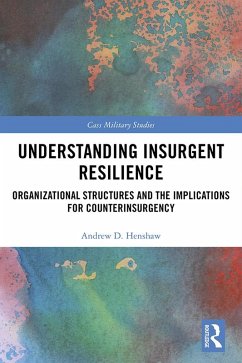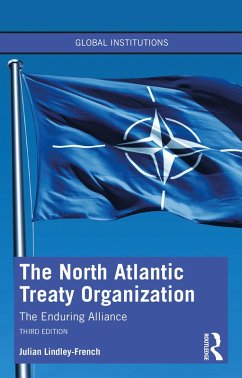
Defending Frenemies (eBook, PDF)
Alliances, Politics, and Nuclear Nonproliferation in US Foreign Policy

PAYBACK Punkte
7 °P sammeln!
The United States maintains defense ties with as many as 60 countries, which not only enables its armed forces to maintain command globally and to project its force widely, but also enables its government to exert leverage over allies' foreign policies and military strategies. In Defending Frenemies, Jeffrey W. Taliaferro presents a historical and comparative analysis of how successive US presidential administrations have employed inducements and coercive diplomacy toward Israel, Pakistan, South Korea, and Taiwan over nuclear proliferation. Taliaferro shows that the ultimate goals in each admi...
The United States maintains defense ties with as many as 60 countries, which not only enables its armed forces to maintain command globally and to project its force widely, but also enables its government to exert leverage over allies' foreign policies and military strategies. In Defending Frenemies, Jeffrey W. Taliaferro presents a historical and comparative analysis of how successive US presidential administrations have employed inducements and coercive diplomacy toward Israel, Pakistan, South Korea, and Taiwan over nuclear proliferation. Taliaferro shows that the ultimate goals in each administration, from John F. Kennedy to George H. W. Bush, have been to contain the Soviet Union's influence in the Middle East and South Asia and to enlist China as an ally of convenience against the Soviets in East Asia. Policymakers' inclinations to pursue either accommodative strategies or coercive nonproliferation strategies toward allies have therefore been directly linked to these primary objectives. Defending Frenemies is sharp examination of how regional power dynamics and US domestic politics have shaped the nonproliferation strategies the US has pursued toward vulnerable and often obstreperous allies.
Dieser Download kann aus rechtlichen Gründen nur mit Rechnungsadresse in A, B, BG, CY, CZ, D, DK, EW, E, FIN, F, GR, HR, H, IRL, I, LT, L, LR, M, NL, PL, P, R, S, SLO, SK ausgeliefert werden.













